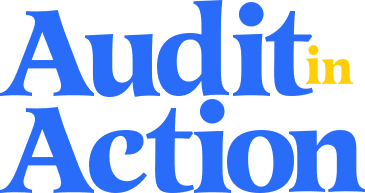Auditors and AI in the New Era of Audit
The audit profession is undergoing a profound transformation, driven by the rapid advancement of artificial intelligence (AI). No longer a futuristic concept, AI is actively reshaping how we approach assurance, impacting financial reporting and the profession as a whole. While AI brings new tools to the audit, for public company auditors, it reinforces a long-standing responsibility: upholding trust in the capital markets.
Auditor oversight of AI can establish trust and confidence when integrating emerging technologies into our work processes, especially as investors seek greater clarity around AI use. In the CAQ’s latest Institutional Investor survey, oversight of AI emerged as a top issue for institutional investors as more companies deploy the technology across accounting, operations, and disclosures.
My colleagues across the profession and I know that algorithms alone cannot build confidence in financial reporting. Auditor independence, transparency, and tailored experience have long defined the audit profession and will remain essential in this new era of audit.
Auditor oversight of AI can establish trust and confidence when integrating emerging technologies into our work processes.
The Human Element Remains Central
While AI offers significant advantages, human involvement remains critical. One way we approach this at Deloitte is to blend the power of AI with the knowledge, experience, and professional judgment of experienced auditors. AI technologies augment our capabilities, but human oversight grounds an audit in the essential elements of trust, transparency, and accountability.
Here are some ways we integrate human oversight:
- Review and Validation: AI-generated insights are carefully reviewed and validated by experienced auditors, who apply their professional skepticism and judgment to determine accuracy and completeness.
- Explainability and Transparency: We prioritize explainable AI, focusing on understanding the decision-making processes of AI systems to determine transparency and understandability.
- Bias Mitigation: We actively work to mitigate potential biases in AI systems, focusing on fairness and objectivity in our audit procedures.
- Ethical Considerations: Ethical considerations are at the forefront of our AI implementation strategy. We adhere to the Trustworthy AI framework to drive responsible use of technology.
AI is a powerful tool that augments our capabilities, yet the foundation of our audits’ quality, integrity, and trustworthiness rests upon our auditors’ experience, judgment, and ethical commitment.
AI technologies augment our capabilities, but human oversight grounds an audit in the essential elements of trust, transparency, and accountability.
Building Trust Through Transparency
Transparency is key in our AI-driven audits. We’re strategically integrating AI into our existing Deloitte Omnia platform to enhance our capabilities while upholding the core principles of trust, transparency, and accountability using our Trustworthy AI framework.
AI’s capabilities are revolutionizing the financial statement audit in several key ways:
- Enhanced Accuracy and Efficiency: AI-powered tools automate routine tasks like data entry, reconciliation, and report generation, significantly reducing the risk of manual errors and freeing up auditors to focus on more complex activities. This leads to more efficient audits and high-quality financial reporting. The ability to analyze entire datasets, rather than relying on sampling, further enhances accuracy and allows for the identification of subtle anomalies that might otherwise go undetected.
- Improved Risk Assessment: AI algorithms can analyze vast amounts of data to identify patterns and anomalies that might indicate risks or fraudulent activities. This proactive approach allows for earlier detection and mitigation of potential issues, strengthening the overall integrity of financial reports. Predictive analytics, a rapidly developing area, allows for proactive risk identification and assessment.
- On-Demand Coaching: Use of AI provides auditors with suggestions to improve clarity and completeness of documentation in alignment with audit guidance. This on-demand coaching results in the development of high-quality documentation that streamlines subsequent reviews while also supporting professional development real-time.
The key to success when using AI is that auditors must remain central to the process. While investors want to know if companies are utilizing AI, they also want to ensure that the technology is governed properly and with a human perspective. Auditors’ independent oversight can create trust in the audit, build investor confidence, and help power the American economy.
The key to success when using AI is that auditors must remain central to the process.
The Future of the Profession
The integration of AI is not just about improving efficiency; it’s about fundamentally changing the nature of the audit profession. Auditors will need to develop new skills to effectively leverage AI tools and interpret the insights they provide. This requires a commitment to continuous learning and experimentation with emerging technologies. The profession is evolving toward a more data-driven and analytical approach, demanding a higher level of technical experience. However, the core values of professional judgment, critical thinking, and ethical conduct will remain paramount.
At Deloitte, we’re committed to harnessing the power of AI responsibly, ensuring that technology serves to strengthen the core principles of our profession and build greater trust in financial reporting. The future of audit is not about replacing human auditors with machines; it’s about empowering auditors with the tools they need to perform their critical role more effectively and efficiently in an increasingly complex world.
Learn more about innovation in the audit through the Audit Effect.
